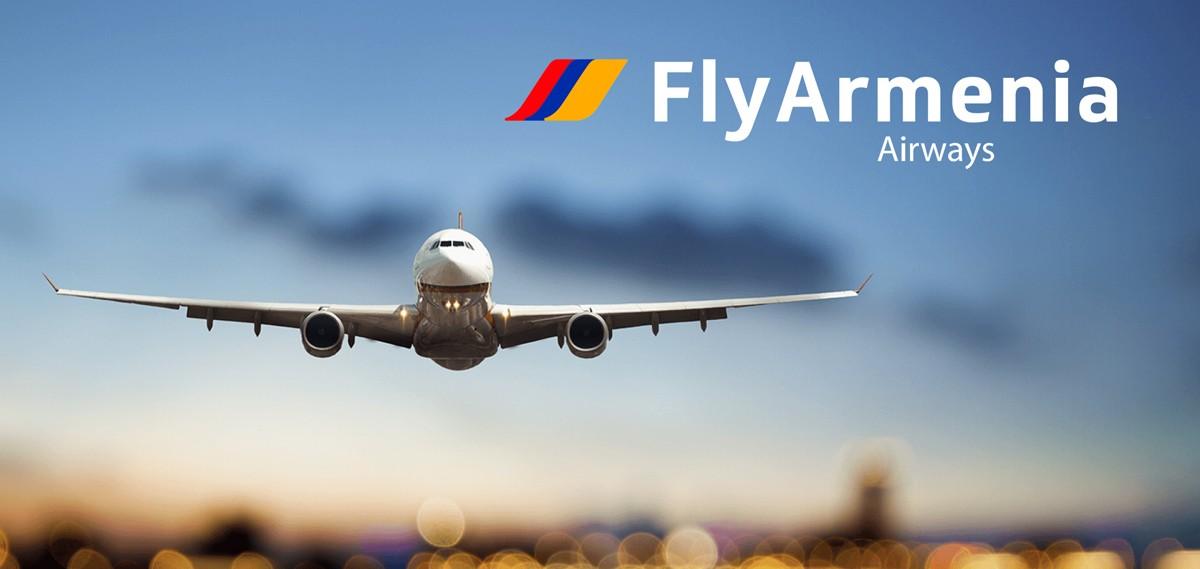
Newly Launched Fly Armenia Airways: The Checkered Past of the Company’s Foreign Investor
Fly Armenia Airways is the new kid on the block when it comes to the aviation sector in Armenia.
Such is the state of the airline business in Armenia that any new entrant to the market, no matter how large or small, is of interest.
Hetq has uncovered several fascinating facts about the company’s foreign owner that will surely be of interest to our readers. He has, what can reasonably be described, a checkered financial history. His aviation dealings have also caught the attention of law enforcement agencies of several European countries.
The Armenian-European project enters Armenia’s aviation market
According to the Armenia’s Civil Aviation Committee (CAC) website, the airline received an air operator’s certificate (AOC) on July 2. It should be noted that the company applied to the committee on this issue on November 25 last year, but the latter, after examining the application documents, found shortcomings and notified Fly Armenia Airways to rectify them. The applicant did not. The CAC thus announced in April that it had decided to discontinue further examination of the application and suggested that the company reapply for a certificate as soon as the documents were ready. The company did so.
There are seven airlines now operating in Armenia.
Atlantis European Airways LLC - IATA and ICAO codes: 2R, LUR
Armenia Airways CJSC - 6A, AMW
Aircompany Armenia LLC - RM, NGT
Armenian Helicopters LLC - KAV
Atlantis Armenian Airlines LLC - TD, AEU
Skyball LLC
Fly Armenia Airways LLC
Armenian Helicopters operates, you guessed it, helicopters, Skyball - balloons, and the others are aircraft operators.
The planes are painted
After receiving the AOC, Fly Armenia Airways announced that the air fleet envisaged for passenger transportation and equipped with Boeing 737 aircraft would be expanded, as the number of planned destinations (currently Russia, Europe and the Middle East) would increase to include Los Angeles, Beijing and Shanghai. Boeing 737-800 and Boeing 737-300 aircraft are shown on the airline's website. The operator plans to use Airbus A300B4 and Boeing 747-200 aircraft for cargo transportation. The airline will use Yerevan’s Zvartnots Airport, which, according to the carrier, will serve as a transit center due to its favorable geographical location.
"Our goal is to increase the number of passengers and cargo to Armenia and abroad," the new operator said in its announcement. "It will help to improve the logistical and economic situation of Armenia in the market, and thanks to our reliable passenger and cargo services, it will be possible to create new tourist and business destinations.”
Karen Tsaturyan, head of Fly Armenia Airways marketing department, told Hetq that the number of planes depends on their upcoming flights' frequency and it is advisable to use 2-3 passenger planes at the moment, and there will be two cargo flights. It should be noted that Fly Armenia Airways (FAA) does not have a registered aircraft in the list of RA aircraft registry published on the CAC website (as of July 16). According to Tsaturyan, the planes have not arrived in Armenia, they are being painted, but the process is delayed due to the coronavirus. The painting was supposed to be done in China, but according to Tsaturyan, work at the Chinese hangars has stopped and the FAA planes are being painted in another country, the name of which Tsaturyan did not reveal. However, he noted that the planes will arrive in Armenia by mid-August.
When asked if the airline has received IATA and ICAO codes (which are used in flight numbers), Tsaturyan said it had, although the name of Fly Armenia Airways is not mentioned on the same IATA website. (see below).
The FAA representative says it isn’t included on the EU "blacklist"
The airline states on its website that it will operate flights to Russia (Moscow, Kaliningrad, Rostov-on-Don, Krasnodar, Sochi), Europe (Marseille, Prague, Istanbul) and the Middle East (Damascus, Tel Aviv). In terms of Marseille and Prague, which are part of the European Union, it should be reminded that after the airlines registered in Armenia were added to the EU "blacklist" on June 2 due to the inadequate flight safety supervision by Armenia’s CAC, the skies over the EU ere closed to Armenian carriers. This restriction also applies to companies, such as Fly Armenia Airways, that have entered the market after the EU announcement. In general, to overcome the barrier and carry out commercial flights, an Armenian company will have to undergo an appropriate audit to prove to the EU that it meets the latter's safety standards.
Tsaturyan, however, claims that FAA received its AOC after the decision of the European Commission, and that the company has no problem.
"We received an air operator's certificate after airlines registered in Armenia were deprived of entry into the EU. The status of our AOC is current. We do not have that problem. In addition, we have a contract with a European airline that will fly our planes, under our name, under our logo, and the registration airport is Zvartnots, which allows flights to Europe without any problems."
The fact, however, is that the "blacklist" includes all air carriers certified by the Armenian regulatory authorities (All air carriers certified by the authorities with responsibility for regulatory oversight of Armenia). In other words, since FAA will be supervised by Armenia’s Civil Aviation Committee, an agency that at least at the moment does not enjoy confidence of the European Commission regarding some of its functions, air carriers managed by the CAC and registered in Armenia have appeared and will appear in the "blacklist".
As for FAA’s European airline partner, Hetq was unable to get a straight answer from Tsaturyan. All we said was that that the flights to the European Union would not be carried out by another airline and there will be no codeshare flights. "We will operate our flights with our planes, with our crew, from our registration airport Zvartnots.”
Armenians reside in most of the destinations targeted by Fly Armenia Airways. Thus, the operator portrays itself as the "Armenia-Diaspora" airline, which will provide transport services both to Armenians living and working in the homeland and abroad.
The flight crew is Armenian
Tsaturyan told Hetq that the FAA pilot crew consists of Armenians.
“They are now undergoing training and are about to finish," he said, adding that the technical staff will also be composed of Armenians supplemented with foreign consultants and supervisors who have worked for Lufthansa and Austrian Airlines.
"We will have our own warehouse, and now work as an established airline. Our problem, at the now, is that the skies are closed to us now. (Because of the coronavirus). When the reopening is officially announced, we will start selling tickets. As a regular airline, we do not want to start with charter flights. Although there is no final decision on that, it is related to the dates when the skies of Armenia will reopen for regular flights," Tsaturyan said.
Who is the foreign owner of Fly Armenia Airways?
Fly Armenia Airways was founded in October 2019 by Bella Gayamova from Yerevan (55%) and the London-based Lincoln Transport Ltd (45%).
Armenia’s “Law on Aviation” stipulates that airlines must be at least 51% owned by an Armenian citizen or a legal entity registered in the in the country to receive an air operator’s license.
Lincoln Transport Ltd. was established in December 2017. According to the British Register, the company engages in real estate sales, accounting and auditing activities. The charter capital €100,000. The secretary, director and sole owner of the company is Simon Spitz, a Czech citizen living in Germany.
Bella Gayamova was the FAA’s first director. She was replaced by the Austrian Norbert Winkler last December.
The newly established Armenian airline announced on its website that it has invited skilled and experienced professionals with years of experience in various fields of aviation (air safety, ground handling, management and marketing) to join its team. Silvio Uhlfelder, head of commercial department of FAA, and Valdis Dombrovskis, head of ground handling department, both German citizens, have previously worked for Lufthansa, Germany's national carrier. Director Winkler is also from the aviation industry.
Tsaturyan told Hetq that the foreign management team will arrive in Yerevan in early August and will hold a press conference soon after.
Let’s now focus on Simon Spitz, someone with an interesting past and the de facto owner of 45% of the new Armenian airline.
Spitz co-founded Star Aviation LLC in 1999 with Martin Kolář, a resident of Prague. 80% of the company was owned by Spitz, the rest by Kolář. Star Aviation, among other things, rented airplanes and aviation equipment. The partners sold the company in 2003 to another Prague resident.
The fact that Spitz, the owner of Lincoln Transport Ltd in London, and the co-founder of the Czech Star Aviation are the same person, is proven by corresponding personal data.
The founding documents of Star Aviation (1999) state that Spitz was born in Prague, is an Israeli citizen and a resident of England. Spitz is listed in the British Register as a Czech citizen and resident of Germany. Lincoln Transport Ltd is not his only company in the UK.
Here are some aviation and motorsport companies (no longer operating) in which Spitz was involved.
Consolidated Aircraft Leasing, Inc. (1994-1995, USA)
Ocean Airways Limited (1995-2001, UK)
Lada WTCC Racing Ltd (2005-2007, UK)
Eurolink Airline Ltd (2008-2017, UK)
Dornier Sports Cars Ltd (2009-2011, UK)
Skytrain-Airlines Ltd., also founded in London in 2010 which operates as a non-scheduled (charter) air passenger, air freight, service provider is another company owned by Simon Spitz. He also serves as the director and secretary.
But these are just some of Sitz’s companies. There’s a lot of information about him on the internet, a lot of it portraying the man in a negative light. No less interesting is that Spitz has used different names at different times - Simon Spitz, Simon Lahav Spitz, Shimon Lahav, and others. Information about his citizenship and place of residence in open sources and official registers also differs - Israel, Czech Republic, Germany, Great Britain, Spain, Switzerland, New Zealand. So, who is Spitz and what does he have to do with aviation?
"Don’t mention his name"
Air Cargo News, a professional magazine published in Great Britain, published an interesting article about Spitz in 1998. It said Spitz had accumulated millions of dollars in debt to the air freight industry.
"Even though Shimon Lahav (also known as Simon Spitz among a number of other aliases) is wanted for questioning in at least three continents, the Czech-born Jew who launched and collapsed Metro Cargo Airlines in the early 1990s, is today operating without restriction as Ocean Airways from Bristol, United Kingdom offices, overtly and unashamedly offering freight charters to the general market. This is despite the fact that in less than a decade he and others have left a global trail of debt and despair, of broken promises and broken companies successfully targeting the 'easy touch' air cargo business and its often naive customers," Air Cargo News wrote in 1998.
The paper noted that Metro Cargo Airlines (a joint venture set up by Lahav and the Soviet Aeroflot in Switzerland) closed a year after its inception (went bankrupt in 1991) and that its founder and director, Shimon Lahav, had disappeared, leaving behind more than $5 million in debt. (In the 1990s, this was not a small amount, although other publications mentioned up to $7 million). The owners of the Il-76 planes (according to the article, the latter were from the CIS countries, but other sources mention one owner, Aeroflot), with which Lahav's company operated, according to the publication, were able to get back their planes parked at European airports only after reaching an agreement with other Metro Cargo Airlines creditors.
Il-76 pilot Vladimir Sharpatov gave the news site rg.ru some interesting details in 2015 about what Lahav’s airlines was doing in 1990s. Sharpatov made the news in 1995 when he and the Il-76 crew he commanded were taken hostage by the Taliban in Kandahar. They escaped Afghanistan a year later year, on the same plane, and Sharpatov was awarded the title of Hero of Russia.
Let's return to Metro, where Commander Sharpatov worked in 1991. He told rg.ru that the Il-76 operated by Metro Cargo Airlines transported self-propelled artillery from France to the Middle East, transported field hospitals, medicines and ammunition from Germany to Saudi Arabia, and two NATO regiments from the Netherlands to Turkey.
"Where to run? We were subordinates, we were carrying out orders," Sharpatov said at the time.
According to Air Cargo News, a few months after the closure of Metro Cargo Airlines, Lahav moved to Sydney, Australia, but was unable to set up a new cargo company. He then left for Auckland, New Zealand, where in 1992 he founded Pacific Express. Lahav was able to rent Il-76 aircraft from Russian and Ukrainian owners and operate in the same way Metro Cargo Airlines. Here, however, he found himself in a new scandal. Lahav chartered an Il-76 cargo plane from the Cuban company Cubana to import two Mi-8 helicopters for a local customer. According to Air Cargo News, Shimon received $20,000 for this service. He took the money from the customer, but when the Cuban plane loaded with helicopters landed in Auckland, the crew refused to unload the cargo because they hadn’t been paid by the Pacific Express. The New Zealand customs service demanded $90,000 for customs clearance of the helicopters. The customer who ordered the helicopters took the matter to the courts, which banned the departure of the Cuban Il-76 from New Zealand. After two days of negotiations, the parties reached an agreement. The Cuban crew was paid, and the helicopters unloaded. New Zealand aviation authorities took a special interest in Lahav's Pacific Express company because of the incident.
Television New Zealand (TVNZ) also made a documentary about Lahav entitled "Frontline". The film tells the story of Lahav (Simon Spitz), who was accused of fraud in Munich. He was found guilty of embezzling $90,000 and sentenced to two years’ probation. It turned out, however, that Lahav had violated the terms of his sentence, and German law enforcement officers, who were searching for him, had learned of Lahav's whereabouts from the movie "Frontline". A warrant for his arrest was issued. At the time, Lahav was on a business trip to the United States. Since Germany and New Zealand did not have a mutual extradition agreement, they both turned to Interpol. One of the Pacific Express managers stated that Lahav wasn’t concerned and was looking forward to returning to New Zealand and talking to the media. However, he did not return, and the Pacific Express was declared bankrupt in 1993. Interestingly, according to Air Cargo News, the Bank of New Zealand had previously transferred money to Czechoslovakia in the name of Lahav's mother. According to the publication, after the bankruptcy of Pacific Express, Lahav owed $1.2 million to his partners, including banks, intermediaries, ground handling companies, and civil aviation authorities. The 1998 article said that New Zealand and Australia had arrest warrants for Lahav.
The American CovertAction Quarterly published an interesting article about Pacific Express in its Winter 1993-1994 edition.
According to the article, in 1993, the American company Evergreen Helicopters blamed its Canadian rival, SkyLink, for sabotaging its deal with the United Nations. Evergreenwas supposed to transport helicopters to Cambodia for the UN, but this did not happen. SkyLink filed a defamation lawsuit against Evergreen, demanding $7 million in damages. It turned out that the American company had signed a contract with Lahav's Pacific Express to transport the helicopters to Cambodia. Pacific Express couldn’t fulfill the contract and, instead, it claimed that a Canadian company, had sabotaged the deal through bribery and corruption. Lahav's company, claimed that the Canadians paid a $5,000 bribe to the subcontractor of the deal (the pilots of the Ukrainian Atlant company), so that they would not fly to Cambodia and sink the deal. Evergreen, in turn, told the UN that the Canadian company SkyLink authored the sabotage.
So, what really happened? Atlant said that it didn’t transport the helicopters to Cambodia not because of bribes from Canadians, but because Lahav's Pacific Express was supposed to pay $500,000 for the job but only handed over $39,000 and two Volvo cars. CovertAction said it was more likely that Lahav's non-payment was the reason for deal going sour, given who Shimon Lahav/Simon Spitz actually was. The American magazine also mentioned that Spitz was convicted in Germany in 1986 on embezzlement charges and was still wanted by German law enforcement (1993-1994). In addition, according to CovertAction, in 1989 the Israeli navy stopped the boat of Lahav, in which he was trying to escape from his creditors to Cyprus. Lahav was then able to leave for Switzerland, where he founded Metro Cargo Airlines, which later owed $7 million to Aeroflot, the owner of the aircraft it used. CovertAction also cited allegations of arms shipments via Lahav airplanes (see below).
According to Air Cargo News, Shimon Lahav moved to the U.S. after New Zealand. He also made the newspapers there.
The magazine writes that Lahav, who opened a lavish office in Los Angeles, marketed the Il-76 as a great fire-fighting plane to various intermediaries in the aviation sector. He claimed it would be an asset to fight California’s forest fires.
After his spiel fell on deaf ears, Lahav then met an American who gave him a job to transport cargo to Mexico on a Boeing 747 cargo plane. Lahav received $400,000 for the service. But the giant plane was only loaded with 500 kg of cargo. The unfortunate customer soon went bankrupt.
Lahav then found partners in Bulgaria who also went bankrupt. German law enforcement officers learned that he was in Bulgaria and contacted Interpol. Lahav was caught and held for four days. However, German police did not attend the court hearing in Sofia, and the court released Lahav, who then left Bulgaria.
Air Cargo News wrote that Shimon Lahav has Israeli and Czech citizenship, and after Bulgaria he found himself in the Czech city of Ostrava, where he started working for Air Ostrava. A cargo contract was signed between the Czech carrier and the Singaporean Air Charter World, on the basis of which the latter transferred large sums of money, but in these conditions Air Ostrava managed to accumulate large debts to its service partners. According to Air Cargo News, the Czech company was not aware of Lahav's deal, and the truth was revealed later.
While working in Ostrava, Lahav contacted the Irish airline Aer Turas and became interested in its DC-8 cargo planes to fly charter flights for the US Postal Service on Christmas Day, 1995. The Irish company provided detailed information to Lahav as a potential customer. Lahav passed this information to the American brocker, Tail Wind International operating in Dallas, who, impressed by the presentation, paid him a $100,000 down payment. No DC-8’s were ever sent to the USA, and Lahav kept the money. After Christmas, a senior female executive of the American company left for Ostrava to meet with Lahav. According to Air Cargo News, they talked, but Lahav introduced himself as Martin Kolář, saying that Shimon Lahav would return in a few days. The American guest was put up in a hotel, but the meeting with Lahav did not take place. The American, who lost her money, had to apply to the American embassy in Prague, asking to arrange her return home. During this time, according to Air Cargo News, Air Ostrava was gathering an unfair reputation for being a fraudulent operator and had to send messages to all its partners, denying its connection with Shimon Lahav. After wards, according to the publication, Lahav was kicked out of Ostrava.
According to the sources of Air Cargo News: "Russian and CIS air cargo operators from the Polish border to Vladivostok are still after Lahav's blood, and they mean business." One contact in Russia told Air Cargo News: "If you ever visit Russia or the CIS, don't mention his name - or you will get strung up by the heavies."
The article of the British newspaper, as mentioned, is not the only one about Spitz and his related companies. Searching for this name on the Internet, you can find various comments, which, however, we will not address here.
Here, we must also note that Lahav's name was also mentioned in connection with the supply of weapons to global hotspots in the 1990s. Moreover, in an interview with HTV Bristol in April 1998, Lahav himself admitted that a British company based at London's Gatwick Airport had leased his aircraft back in 1995 to transport weapons to the Democratic Republic of Congo. Lahav said he thought the arms shipment was an intergovernmental deal. "We fly if the documents are right. We do not check the papers... we just check the export certificates," he said.
"Our partner is not a person"
"We have a lot of foreign investment, and all this (means the company - author) is based on it," Fly Armenia Airways' marketing department head Karen Tsaturyan told Hetq, referring to Lincoln Transport Ltd. And when Hetq asked him to comment on the information about Simon Spitz on the internet, Tsaturyan replied tey can write whatever they want. Tsaturyan had no further comment on the matter.
"We are dealing with an organization (Lincoln Transport Ltd.- author). Our partner is not a person, but an investment organization," Tsaturyan told Hetq.
-But he isn't the sole owner of that company. It means he owns 45% of Fly Armenia Airways.
-No.
-You don’t agree?
-Of course not. He’s just an individual, a person, who is the director of that company.
-He’s also the owner. We will write about it and we want to know the reaction of Fly Armenia Airways so that the article doesn’t appear one-sided.
-Well, do you know how it is? He is not personally the shareholder of our company. He’s simply the director of the company that owns the shares. Tomorrow, that person may not be the owner and director. Our contract, the process of financial cooperation will neither suffer nor benefit from it in any way. That person does not play any role. The investor is a London company, but you are now naming a person who, to put it bluntly, has no role to play. That is, the arrangements are irrelevant and do not depend on that person, so write whatever you want about him. I do not care at all what you write.
Since Tsaturyan said that Fly Armenia Airways was founded based on foreign investment, Hetq asked about the investment, if any, made by Bella Gayamova, who owns 55% of the company. We wanted to know if Gayamova was simply a “fictitious” shareholder.
"There is nothing fictitious in this organization. Everything that exists corresponds to the information we provide,” Tsaturyan replied.
 Videos
Videos Photos
Photos
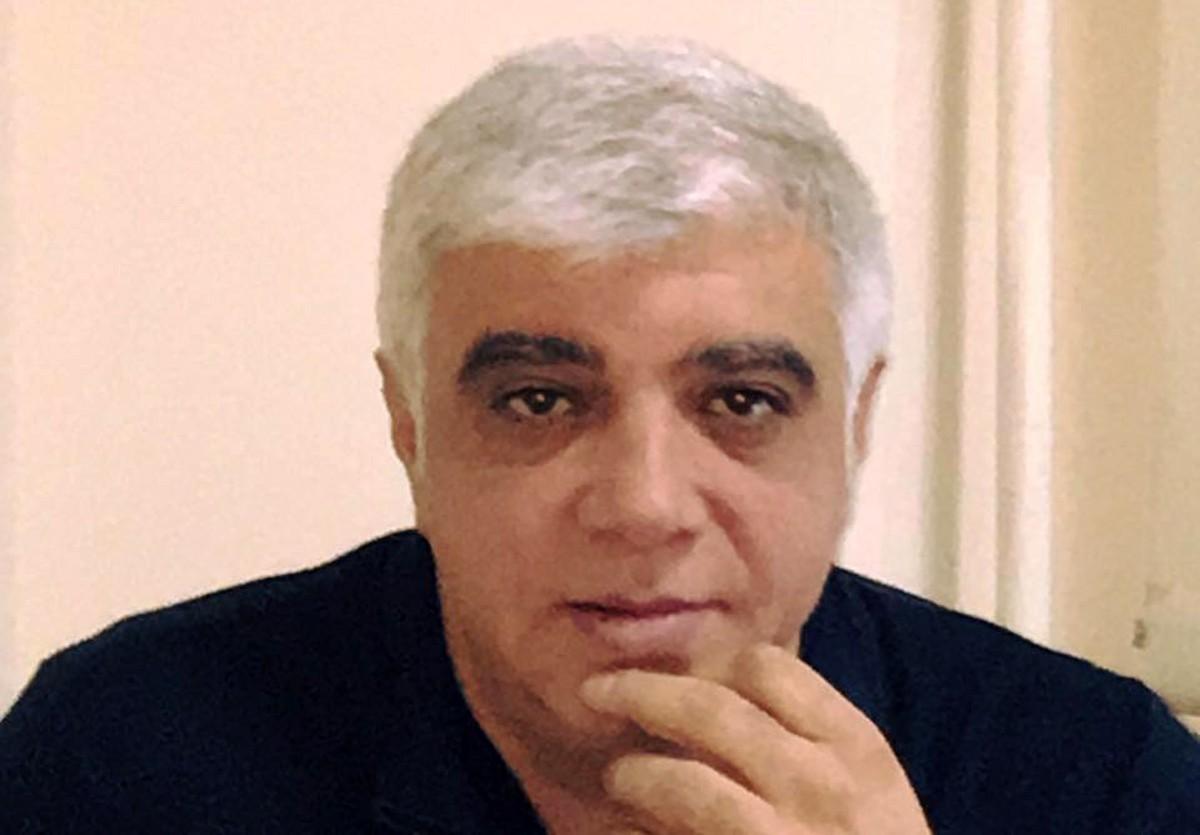
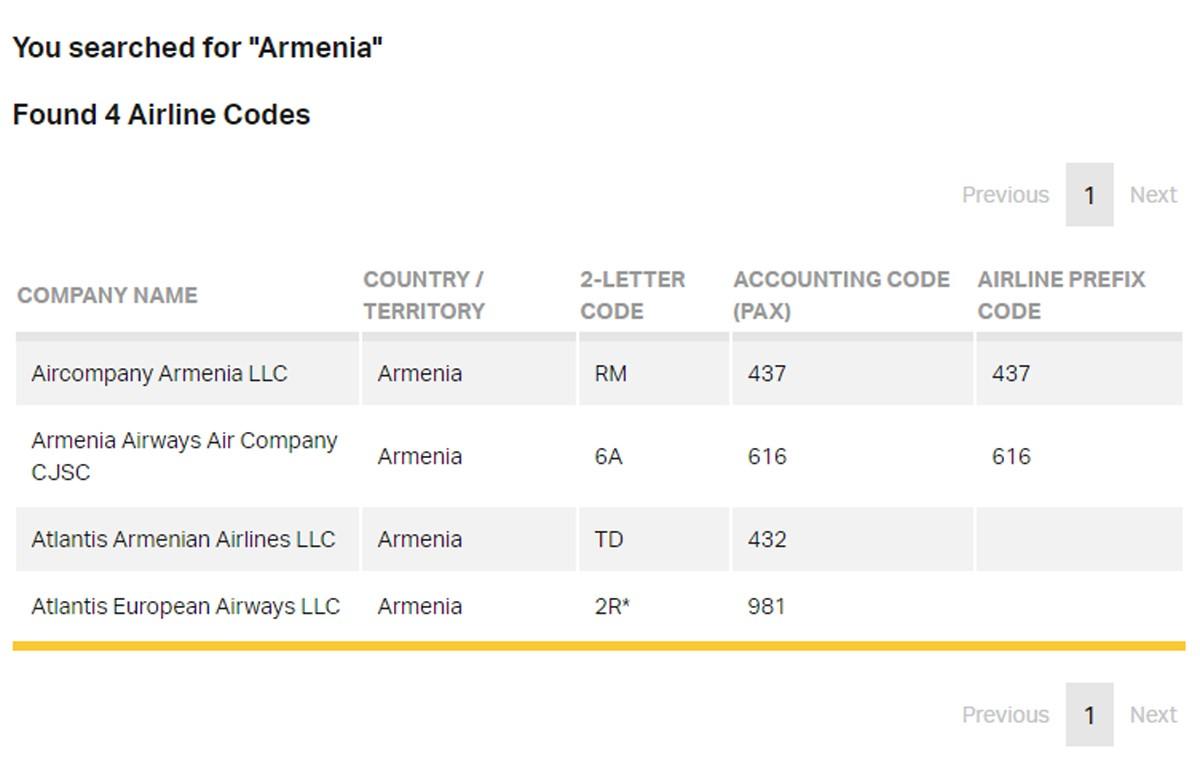
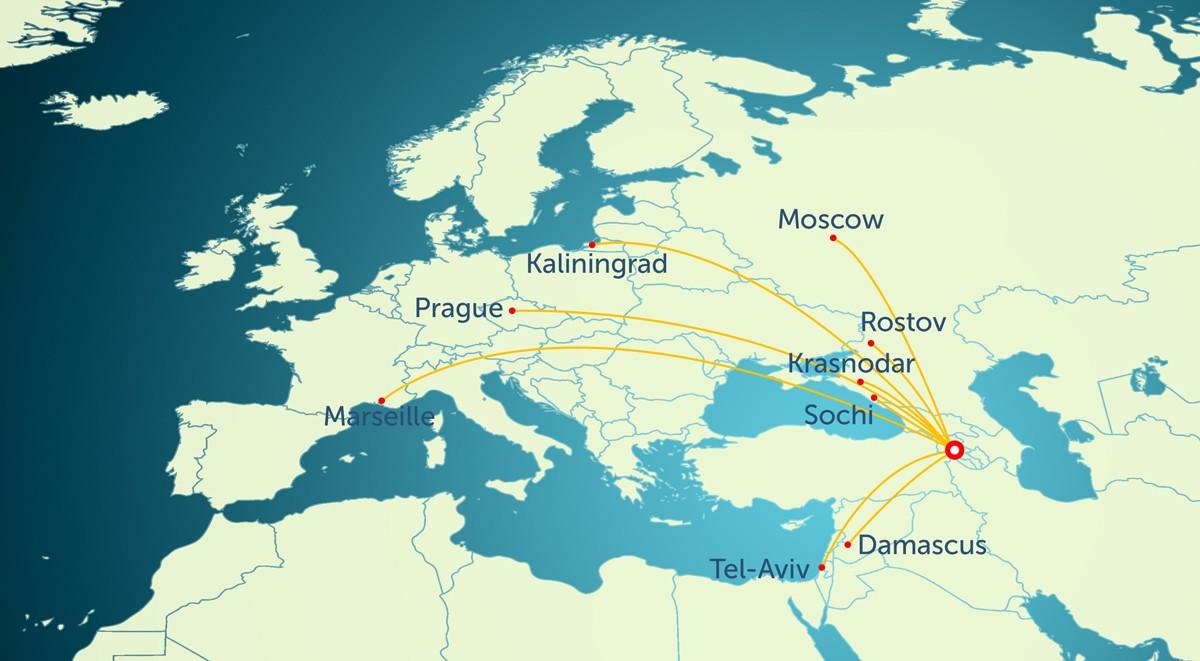

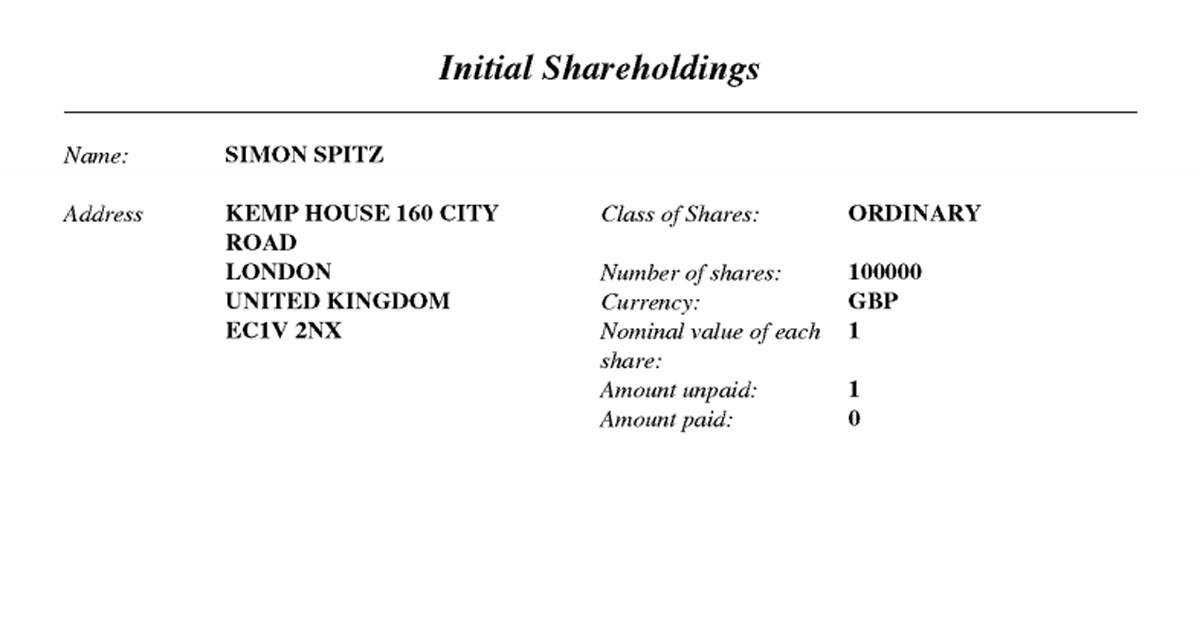
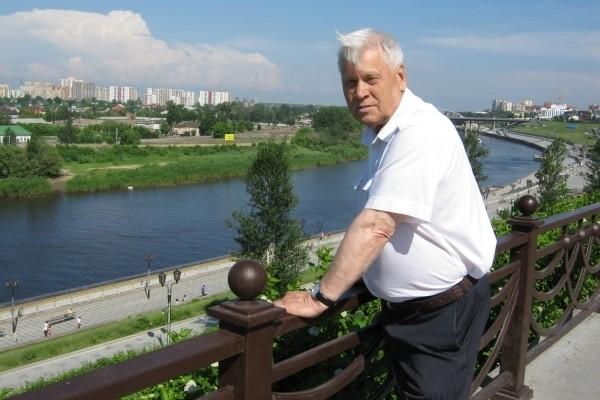
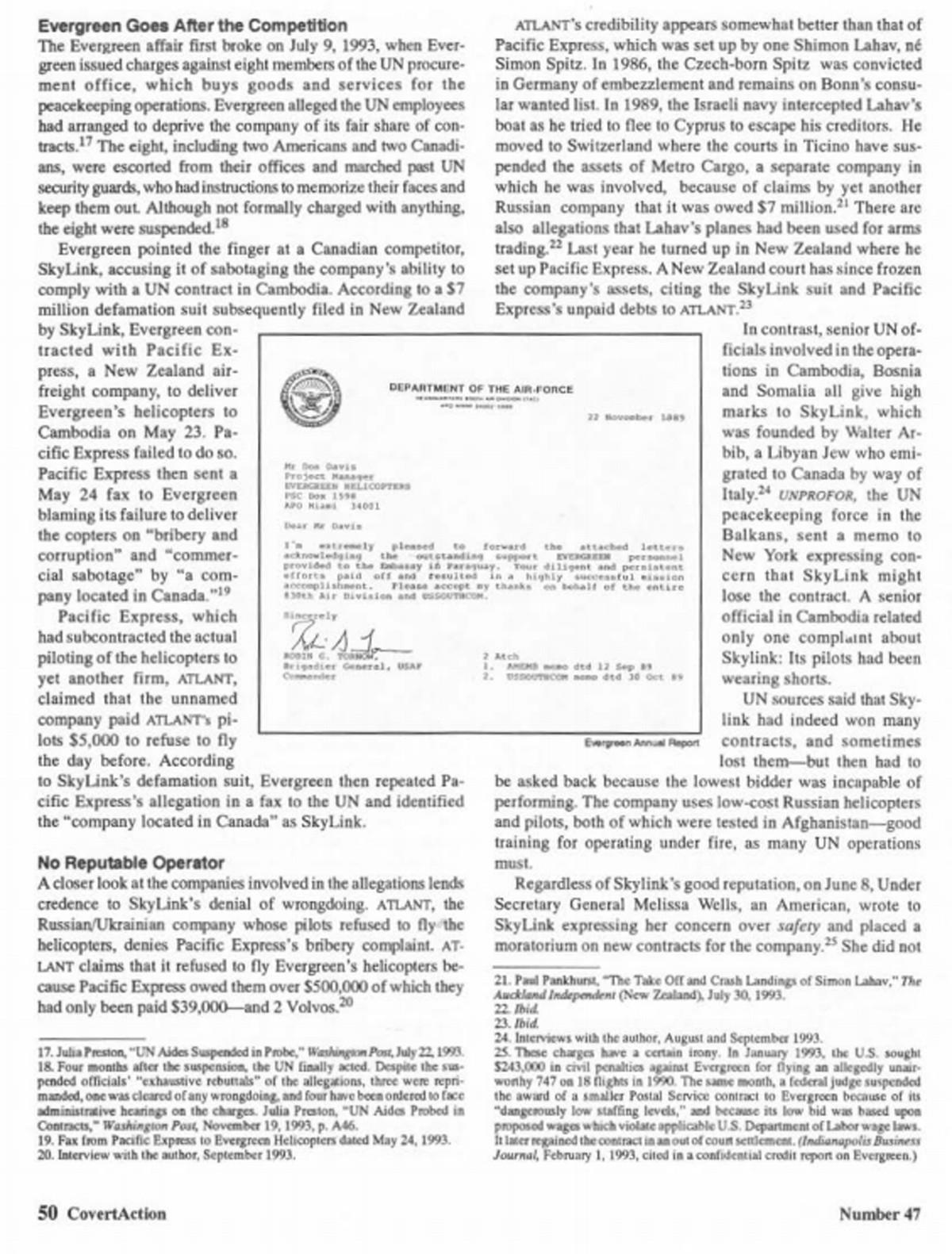
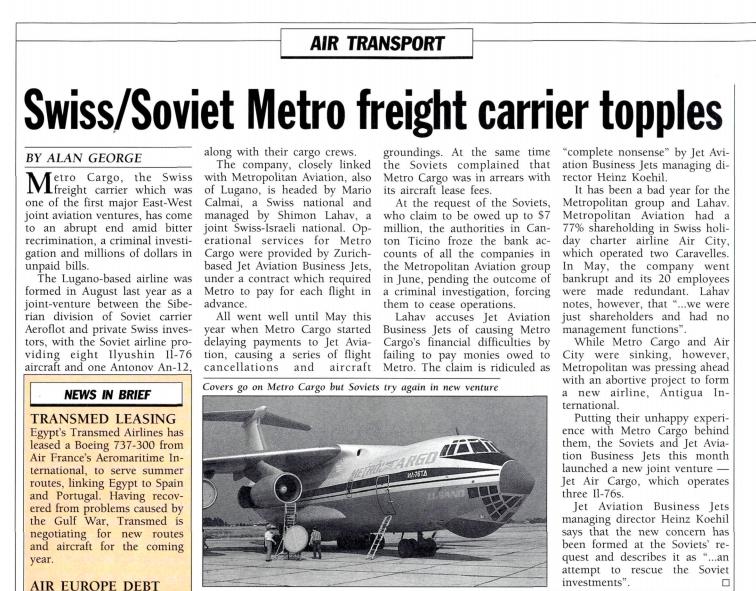
Comments (2)
Write a comment